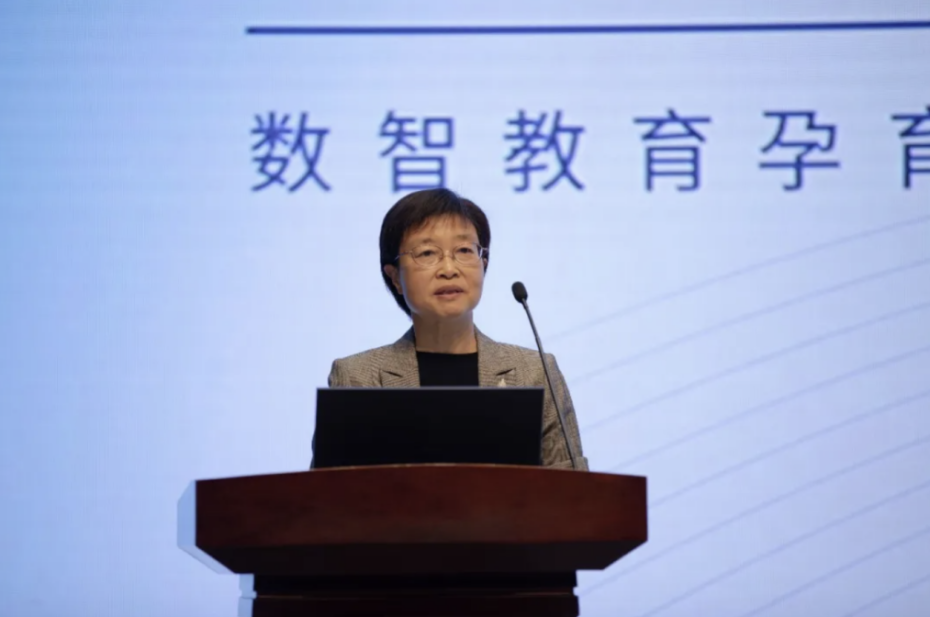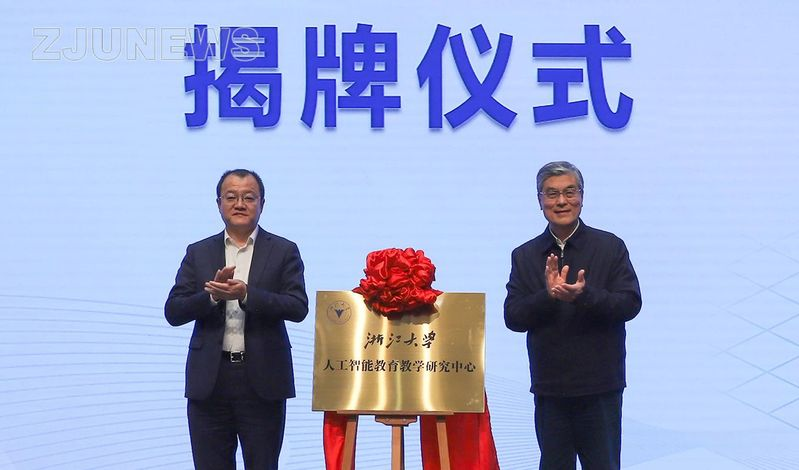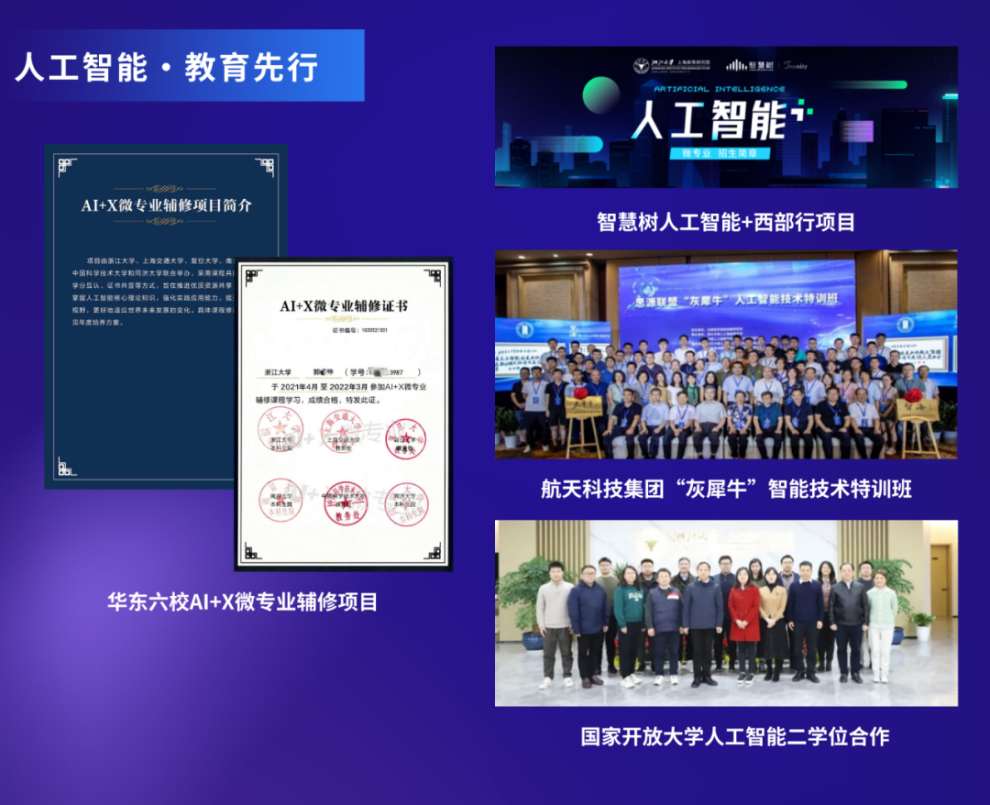Recently, the Higher Education Department of the Ministry of Education announced the first 18 exemplary cases of "Artificial Intelligence + Higher Education" application scenarios. One of these cases, the "Zhihai Platform for Science and Education: Micro-Course Education that Empowers Knowledge," was a collaborative effort led by the College of
Computer Science and Technology at Zhejiang University, along with other partners. This project was successfully selected for inclusion.
To fully implement the national strategic initiative of the "Artificial Intelligence +" action plan, and to actively promote the integration of higher education with AI technology, the Ministry of Education's Higher Education Department launched a collection and demonstration of exemplary "Artificial Intelligence + Higher Education" application scenarios in early February. The goal is to identify, explore, and promote cases that represent the forward-thinking and positive impact of AI in higher education, supporting innovation in talent cultivation, teaching method reforms, and the enhancement of educational governance.
Case Overview
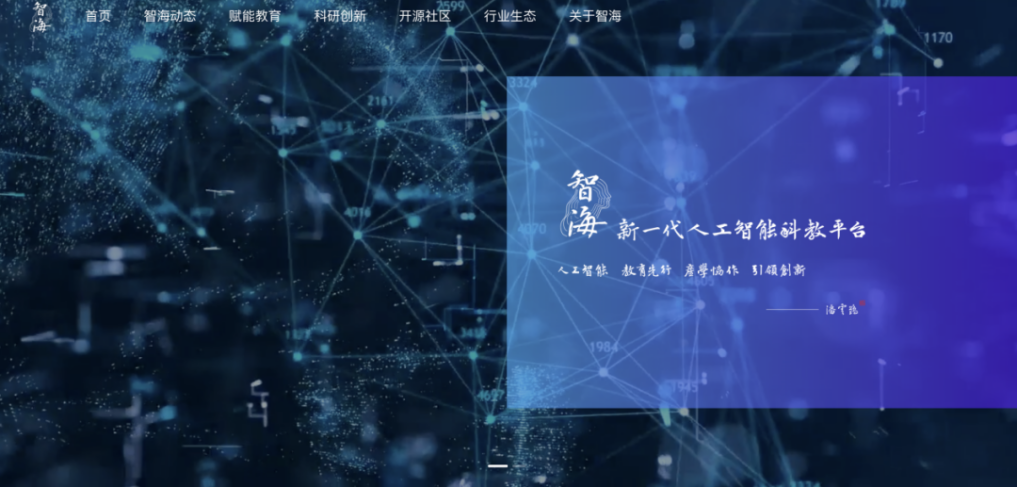
The Zhihai New-Generation Science and Education Platform (referred to as the "Zhihai Platform") was launched in July 2020. Named by Academician Pan Yunhe, the platform's name reflects the idea that "intelligence drives the progress of an era, and like the vastness of the sea, it empowers all things to evolve." This concept embodies the platform's mission of "artificial intelligence with education at the forefront; industry-academia collaboration leading innovation." The Zhihai Platform focuses on AI talent training, interdisciplinary development, and ecosystem building, while advancing AI's interdisciplinary paradigm and practical application.With support from the Ministry of Science and Technology’s "Science and Technology Innovation 2030" AI initiative, Zhihai Platform follows the principles of integrating industry with education and science with education. It has built a large-scale, open, and innovative platform and ecosystem in AI and interdisciplinary fields.
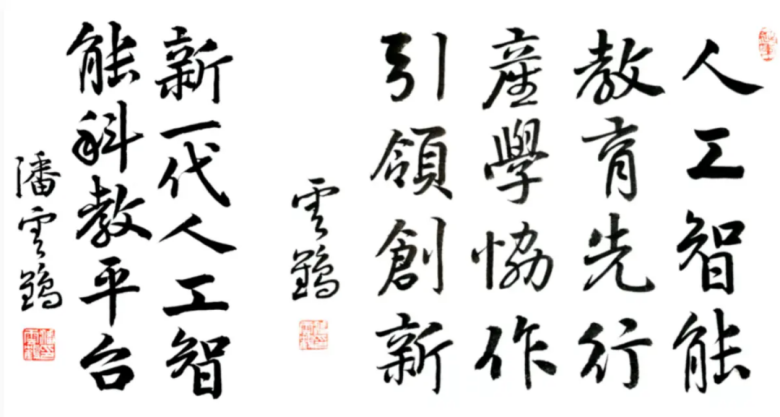
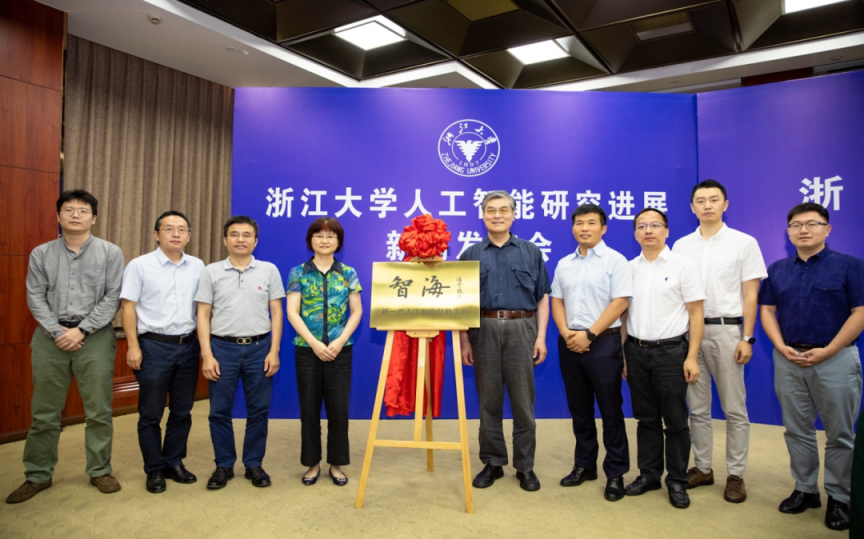
Key Features of the Zhihai Platform:
1. Knowledge-Centered Integration of Digital Teaching Resources
Teaching materials, including videos, audio, practical training cases, and PowerPoint presentations, are organized around core knowledge points. This structured approach enriches the digital resources available to help students learn more actively and empower teachers to teach more creatively.
2. Interactive Training Platform: Zhihai-Mo (momodel.cn)
The platform offers interactive, immersive learning experiences, allowing users to engage in hands-on practice while studying. It also provides low-barrier online model development, facilitating the shift from "knowledge-based education" to "competency-based education."
3. Intelligent Education Model: Zhihai-Sanle (sanle.hep.com.cn)
In response to the transformative impact of generative AI on education, Zhihai-Sanle was developed in collaboration with Higher Education Press, Alibaba, and Huayuan Computing. This AI-driven platform offers personalized learning features such as real-time question answering and resource recommendations. It serves the wider higher education community through cloud-based services, paving the way for a new paradigm in AI-enabled education.
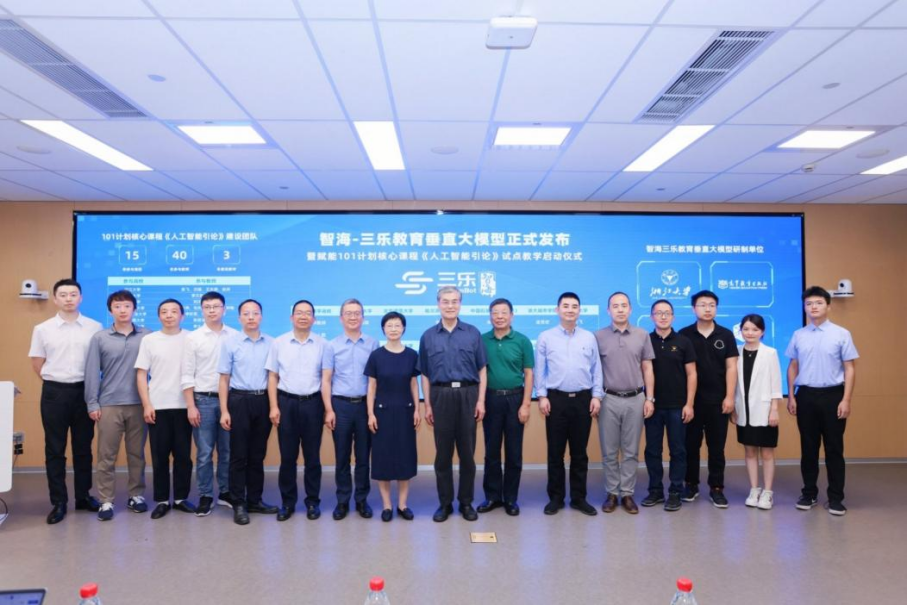
The Zhihai Platform remains dedicated to its "AI with education first" mission and serves as a training platform in several key AI fields. It has contributed to the establishment of the AI+X micro-major program shared by six East China universities, the core course "Introduction to Artificial Intelligence" in the Ministry of Education’s 101 Plan, and other initiatives such as the "Artificial Intelligence +" micro-major program, the "Gray Rhino" intelligent technology training by the Aerospace Science and Technology Group, and the second AI major at the National Open University.
In March, Zhejiang University established the Artificial Intelligence Education and Teaching Research Center, which now offers AI-related general courses to over 6,300 undergraduates annually. The university continues to rely on the Zhihai Platform to enhance its AI curriculum and training model, ensuring that more individuals benefit from advancements in artificial intelligence.
